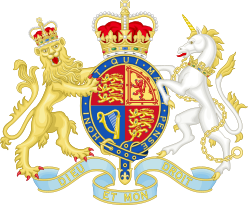 | |
| Presented | 14 March 1989 |
|---|---|
| Country | United Kingdom |
| Parliament | 50th |
| Party | Conservative Party |
| Chancellor | Nigel Lawson |
‹ 1988 1990› | |
The 1989 United Kingdom budget was delivered by Nigel Lawson, the Chancellor of the Exchequer, to the House of Commons on 14 March 1989. It was the sixth and final budget to be presented by Lawson during his tenure as Chancellor, and took a much more cautious approach to the UK economy than previous budgets delivered by Lawson. It was outlined against the backdrop of mounting economic turbulence with increasing interest rates and rising inflation. 1989 was also the final pre-television era budget to be presented to the House of Commons.
